




UNESCO Accreditation
Heritage Saskatchewan became an accredited Non-Government Organization (NGO) under the 2003 United Nations Educational, Scientific and Cultural Org anization (UNESCO) the Convention for the Safeguarding of the Intangible Cultural Heritage.
We extend our gratitude to all of our volunteers, including the Board of Directors, who give of their time and expertise in guiding the work of Heritage Saskatchewan.
Thank you to all of our partners and sponsors who contribute to our various projects.
We thank SaskCulture for their ongoing support, at many levels, as we continue our work as their Community of Interest for heritage.
WE COULDN’T DO IT WITHOUT YOU!
Heritage Saskatchewan’s work traverses the traditional homelands of the Nehiyaw/Nehithaw/ Nehinaw (Cree), Nahkawe (Saulteaux), Dakota, Lakota, Nakota, and Dene, the homeland the Michif (Métis), which are territories covered under Treaty 2, Treaty 4, Treaty 5, Treaty 6, Treaty 8, and Treaty 10, a place many cultures now call home – Saskatchewan.
We are committed to building relationships with Indigenous communities and learning to live on these lands in a better way.
FUNDED BY:



As our Sovereign’s representative in Saskatchewan, I am pleased to extend greetings and thanks on behalf of His Majesty King Charles III, King of Canada to the board of directors, staff, members, volunteers and sponsors of Heritage Saskatchewan for all you do to develop and promote Living Heritage in our province.
It is a privilege to serve as your Honorary Patron. I am especially grateful for your innovative and educational children’s programs, which inspire a love of learning and heritage. Our province is indebted to your non-profit for managing the annual Heritage Fairs and numerous other worthy initiatives.
Thank you for partnering with cultural groups on important projects that demonstrate the richness and diversity of our heritage. I especially want to recognize your ongoing work in the area of reconciliation.
I offer my sincere gratitude to Heritage Saskatchewan for sustaining and sharing the heritage that enriches our lives and informs our identity. Please accept my congratulations on another successful year, and my best wishes for 2024.
 Russ Mirasty Lieutenant Governor Province of Saskatchewan
Russ Mirasty Lieutenant Governor Province of Saskatchewan
 Erin Folk, President
Erin Folk, President
A few years ago, this report began with the words “we continue to live in interesting and uncertain times!” Despite emerging from significant challenges over the past few years, we continue to exist in a time of uncertainty. We have become more aware of our interconnectivity: what happens globally impacts our attitudes and responses locally. As we take time as an organisation to reflect on this past year, we do so with the recognition that all we do is in response to our environment and is a springboard for action.
Heritage Saskatchewan continued to direct our work to projects that connected living heritage to community and a sample of this work is reflected within this annual report. This included Heritage Fairs, a reconciliation project in Humboldt, ongoing work on a municipally focused wellbeing project, a project on Fostering Food Security Through Local Cultures, research on grain elevators in Saskatchewan, and much more. We returned to hosting the Lieutenant Governor’s Heritage Awards that celebrated great work occurring throughout the province. Whether those projects focused on tangible or intangible heritage, there was a sense of pride and dedication to heritage and its direct connection to human experience, and our sense of belonging in this place we all call home.
Foundational to our work has been the need and desire for engagement and partnerships where we can continue to build relationships based on respect and trust. Thank you to our members, volunteers, sponsors, and partners for your support and willingness to engage with us. Through active engagement with individuals, communities, and organisations this past year, we were inspired by incredible work occurring throughout the province. It is through this collective work that we can make a difference and where living heritage builds a foundation from which we can find a better way forward.
We extend our heartfelt thanks and gratitude to our Honorary Patron, the Honourable Russ Mirasty, Lieutenant Governor of Saskatchewan, and her Honour Donna Mirasty, for serving as Heritage Sasaktchewan’s Honorary Patron and willingness to participate in a number of our events this past year. We value and thank SaskCulture for their vision and guidance both in establishing Heritage Saskatchewan, and for their continued commitment to strengthening our partnership as we serve as one of their communities of interest.
Thank you to the Board of Directors who provided the momentum and commitment to govern the organisation, sharing their experiences and perspectives. This included their own willingness to present on relevant topics, providing fellow Board members and staff with opportunities to share, reflect and learn. These included presentations on the “Indian Act and Civil Society” and “Archaeological Contributions to Unmarked Grave Studies”. In addition, a presentation last June by Jenaya Chutskoff (Director of Finance, Administration and UNESCO Lead at Wanuskewin Heritage Park) helped to inform the Board and staff of recent progress towards World Heritage designation. These sessions are important ways to connect with community and to inform our work going forward. The Board remains committed to governing through policy which has allowed for meaningful dialogue focused upon current and future trends that impact our work.
Our sincere gratitude is extended to the highly motivated and skilled staff team for their leadership, adaptability, and dedication, which continues to be outstanding. Your willingness to learn, to trust, and to step out even when the outcomes appear uncertain demonstrates your passion and commitment to community and to this important work.
We have a strong working relationship with the National Trust for Canada, who has recently undertaken surveys of the heritage community at a national level. The results confirmed the need for change in the sector and for working collaboratively with other like-minded organisations (both within and outside of the heritage community) at all levels including locally, provincially, nationally, and internationally. There is growing recognition that heritage and heritage conservation can be a part of solutions to the pressing issues of our times. We must be committed to addressing the needs of communities and advancing reconciliation, inclusion, antiracism, climate change, housing, and wellbeing. Heritage Saskatchewan supports and remains committed to moving these agendas forward, thereby responding to real needs in community and advocating for the value in safeguarding our cultural heritage for today and future generations.
 Ingrid Cazakoff, CEO
Ingrid Cazakoff, CEO
A report developed for Heritage Saskatchewan by our former researcher Sandra Massey, entitled: Living Heritage: Reimagining Saskatchewan Culture and Creating the Future We Want, continues to guide our work. To quote from this report: “living heritage is the water we are all swimming in, the cultural milieu that we inherit but may not consciously be aware of how it motivates our choices and behaviours. Living heritage is reflected in the ongoing negotiations of values, beliefs, and ways of living, and is naturally connected to our willingness and capacity to answer this difficult and complex question: how’s the water?” A great reminder to ask ourselves as we continue our work!
With gratitude,
Erin Folk, President

 Ingrid Cazakoff, CEO
Ingrid Cazakoff, CEO
Kristin Enns-Kavanagh (2009-2014)
Les Oystryk (2014-2017)
Wendy Fitch (2017-2018)
Tara Janzen (2018-2019)
Alicia Buckley (2019-2020)
Tomasin Playford (2020-2021)
Emma Morris (2021-2023)
Heritage Saskatchewan’s President, Erin Folk was successful in receiving the National Trust’s John Edwards Conference Bursary, giving her the opportunity to attend the 2023 National Conference in Ottawa in October. Besides finding the conference informative, Erin said that she took in some very interesting and thought-provoking sessions that have, and will, assist her with her understanding of heritage conservation in Canada. The information provided is instrumental in guiding heritage professionals and volunteers in future decision making for programs and projects that impact Canadians today and for tomorrow. Erin appreciates having been able to attend and experience what the conference had to offer.
John Edwards Conference Bursary – Erin Folk

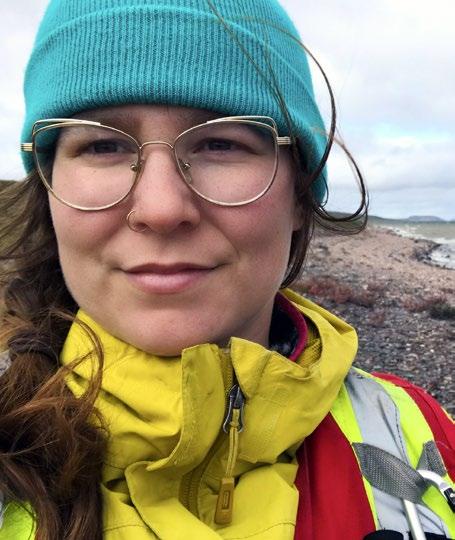
EXECUTIVE
Erin Folk, Chair
Emma Morris
Haven Rees
Ian Worme
NOMINATIONS
Emma Morris, Chair
Erin Folk
Jennifer Rychlo
Paige Hundt






Tim Panas, Chair
Céline Perillat
Erin Folk
Haven Rees
Ranelle Sylvestre
PERFORMANCE EVALUATION & COMPENSATION
Erin Folk, Chair
Chad Debert
Emma Morris
Ian Worme
Paige Hundt

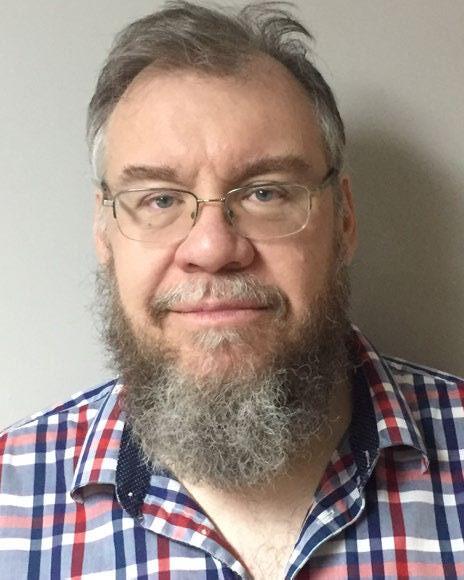
GOVERNANCE
Ian Worme, Chair
Chad Debert
Erin Folk
Jennifer Fitzpatrick
Tim Panas
Erin Folk, President; Emma Morris, Past President; Ian Worme, Vice President; Bailey Pelletier, Chad Debert, Haven Rees, Jennifer Fitzpatrick, Jennifer Rychlo, Paige Hundt, Ranelle Sylvestre, Tim Panas.






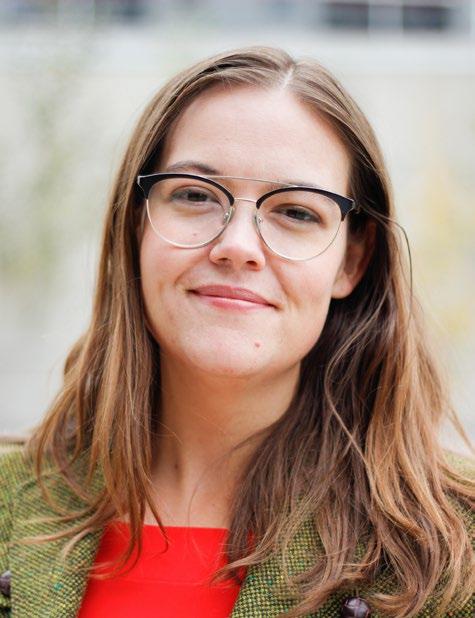
 Isaac Farrell Research Assistant
Nicholas (Nick) Antonini Research Intern
Katherine Gilks Heritage Fairs Coordinator & Operations Assistant
Kristin Catherwood Mantta
Isaac Farrell Research Assistant
Nicholas (Nick) Antonini Research Intern
Katherine Gilks Heritage Fairs Coordinator & Operations Assistant
Kristin Catherwood Mantta
Living heritage and wellbeing are relevant to Saskatchewan citizens. Our research demonstrates the connection between living heritage and wellbeing, its importance to daily life and equitable policymaking. Through the use of current research including our own work, we identify specific areas relevant to our own work and in doing so, we can influence, inform and share new concepts which strengthens our collective ability to lead, collaborate, develop and promote living heritage. Most importantly, our research work is not done in a void – partnership and engagement is essential to all our work, including research. In order to create and reflect the vibrant communities of Saskatchewan we work to apply the research we do, taking it from theory to practice, or making it clear and usable by the community. Our work is recognised and is a catalyst and driven by research. The ensuing projects are a result of that research.
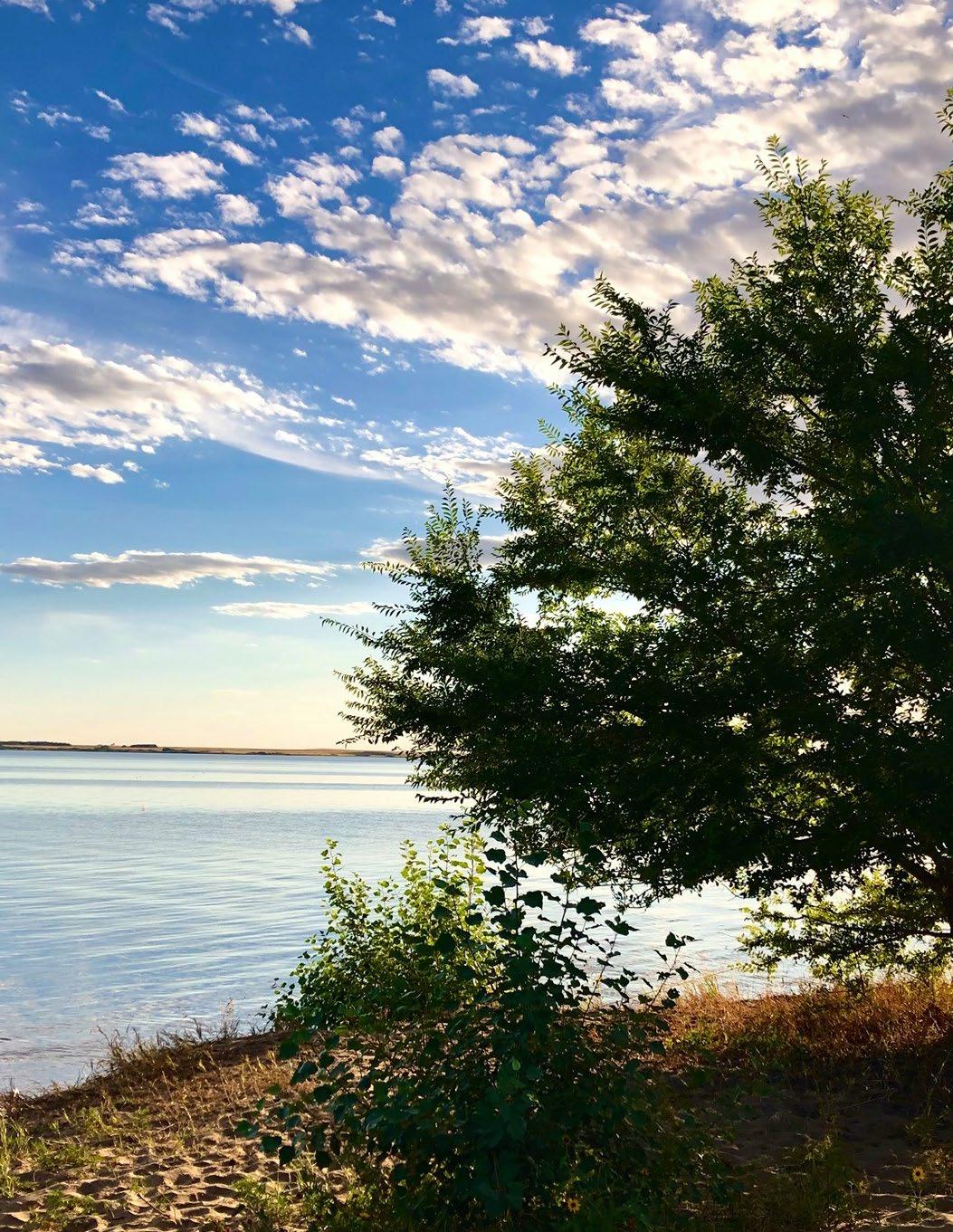
Grain elevators are an iconic building typology in the prairies, perhaps Saskatchewan especially. Every year there are more stories about the destruction or deconstruction of grain elevators across the province. Heritage Saskatchewan wanted to know what these sites meant to people in the past and what they mean to communities in the present, both the good and the bad.
For the summer of 2023, Heritage Saskatchewan hired Isaac Farrell as a Summer Researcher through the Young Canada Works program. At the end of August, Isaac’s contract was extended to work on a public document, and to present a small part of his findings at the 2023 National Trust Conference in Ottawa. Isaac’s work was to research and evaluate the state of Saskatchewan’s remaining wooden grain elevators. His primary focuses were exploring their changing value to the people of Saskatchewan in the past, present, and future, evaluating the condition of the average grain elevator in the present, and identifying the challenges facing their conservation. Secondary focuses included probing contemporary levels of interest in grain elevators, gauging interest in collaborations between the various elevator museums across the province, and preliminary research on several special interest topics. Over the summer, Isaac primarily conducted his research through eight separate trips to elevators across the province that covered 5,800 kilometres, 133 communities with grain elevators, and over 150 grain elevators. During these travels, Isaac took thousands of pictures of grain elevators, made dozens of notes on their condition, interviewed over twenty people involved with grain elevator conservation

in some capacity, and assembled a partial inventory of Saskatchewan’s grain elevators. Outside of these trips, Isaac’s duties included reviewing previous literature on grain elevators, compiling a list of relevant people and places to contact for future researchers, and highlighting potential heritage elevators for the future. Isaac has been turning this research into a final report and a document for public use.
Isaac’s overall findings were that the number of grain elevators in Saskatchewan has declined significantly over the last 50 years. Many grain elevators are in poor condition, and unless a grain elevator has been actively maintained, it is likely not realistically restorable. Isaac identified several reasons for this decline, including the lack of specific heritage policies protecting wooden grain elevators, and that those in charge of heritage elevator conservation often do not understand how current heritage legislation impacts their elevators. However, he also found that a far higher percentage of wooden grain elevators are actively being used and maintained by the private sector than previous literature on the subject believed, and that despite their overall decline, grain elevators remain one of Saskatchewan’s most popular symbols. While often grain elevators are spoken of or remembered nostalgically, Isaac found that they still play a very real role in communities, both as active places of industry, as ties to community pasts, and as a centre point for community identity. Isaac’s work has been documented and will be published for circulation in 2024.

 Hepburn, Saskatcewan
Bracken, Saskatchewan
Hepburn, Saskatcewan
Bracken, Saskatchewan
A submission to the Social Sciences & Humanities Research Council (SSHRC) to further promote wellbeing and to look at conducting an environmental scan of municipalities in Saskatchewan has provided the resources necessary to continue with this project. This partnership between SaskWellbeing (Heritage Saskatchewan and the Community Initiatives Fund [CIF]) and the Johnson Shoyama Graduate School of Public Policy focused on the examination of concepts of wellbeing in municipalities.
In 2023, work continued to the next phase involving focus groups and a presentation at the Saskatchewan Urban Municipalities Association’s (SUMA) conference on April 17 in Saskatoon. Our presentation session was the most highly-attended session at the conference, confirming that interest in holistic approaches to address community planning and issues resonated with the delegates. The feedback received from our presentation indicated a growing need to focus on addressing challenges and successes from a wellbeing perspective that acknowledges the interconnectivity between those challenges and the need for wellbeing approaches to budgeting processes. As a result of the high interest and presentations, we were interviewed for a podcast that aired through SUMA’s communications channels. We look forward to continuing this important work in the years ahead.
We continued to participate in webinars organized by the Canadian Wellbeing Knowledge Network (CWKN), a newly formed collaborative network based at McGill University. This network involves people and organizations from the private, public, academic, and nonprofit sectors with shared goals and perspectives relating to wellbeing approaches in Canada. To date, the CWKN has offered virtual presentations with international speakers highlighting policies and wellbeing initiatives happening worldwide. Canada’s involvement at a federal level looks promising as we join others in moving wellbeing policy forward. Heritage Saskatchewan’s involvement provides us with opportunities to learn, share, and strengthen our commitment to working with and raising awareness for wellbeing approaches in Saskatchewan.

Want to learn more about wellbeing?





This year, we completed the Fostering Food Security Through Local Cultures project, which was a partnership between Dr. Glenn Sutter, Curator of Human Ecology at the Royal Saskatchewan Museum, Dr. Amber Fletcher, Professor of Sociology and Sociology at the University of Regina, Nicholas Antonini and Ebube Ogie, PhD, graduate students in Sociology at the University of Regina, and Heritage Saskatchewan’s Director of Living Heritage, Kristin Catherwood Mantta, and CEO, Ingrid Cazakoff. The research was funded by a Social Sciences and Humanities Research Council of Canada (SSHRC) grant and a MITACs grants supported the students. Heritage Saskatchewan employed Nicholas Antonini from May 2023 with a Young Canada Works internship grant.
Producing the final report involved reviewing and analyzing the qualitative data collected this past spring (2023) and fall (2022). We structured the report according to major themes that were explored in the research. The report combines the results from the survey conducted in early 2022 and the findings from our interviews. The four case study communities were Gravelbourg, Muskeg Lake Cree Nation, Val Marie, and White City. The research results demonstrated that food costs and availability were concerns for people living in rural and urban spaces. Findings showed that, generally, concerns were with respect to the respondents’ communities and less so with their personal situations. The report, overall, shows that food sovereignty, and Indigenous food sovereignty in particular, are important focal points. The first draft was sent to the project team for


comments and edits, which were acknowledged, and addressed in the final draft. This report was shared with project participants and presented back to participating communities.
In November we returned to two of our participating communities (White City and Muskeg Lake) to present the research. In both instances, we held a community event to share the research with interested community members. The events featured a presentation from the research team, led by Glenn Sutter and Ebube Ogie, PhD, and a presentation about living heritage and Heritage Saskatchewan’s role by Kristin Catherwood Mantta. A discussion period followed the presentation. In the case of Muskeg Lake, the project team presented the results to teachers first in the afternoon, followed by the community presentation over the supper hour. This included a meal prepared by community members. The Muskeg Lake event was particularly well attended, and the discussion yielded a great deal of fruitful followup information for researchers. In general, community members emphasized that living heritage plays an important role in food sovereignty and there is a desire for traditional knowledge and skills related to food production, processing, preservation, and preparation.
We have organized the two final community visits to present the research in Val Marie and Gravelbourg, with dates to be confirmed in late winter/early spring 2024. The final report and associated information about the project will be publicly available on the Heritage Saskatchewan website after the community visits are complete.






Living Heritage is fundamental to our sense of identity, belonging, and place, and integral to building community. Resilient communities are those built on cross-cultural understanding and the willingness and ability to negotiate a shared set of values and a shared future.
In 2023, we hosted an in-person Regional Heritage Fair in Moose Jaw, as well as our Virtual Heritage Fair and our in-person Provincial Heritage Fair (once again, held at Government House in Regina).
In March 2023, we launched a website dedicated to the Heritage Fairs: https://heritagefairssk.ca/
In the late winter and early spring, Katherine Gilks travelled to various school Heritage Fairs to meet with teachers and students. This was a fruitful effort to strengthen relationships that had weakened during the pandemic. It was also a wonderful opportunity for Katherine to meet teachers who had been a part of the Heritage Fairs program for many years and see how Heritage Fairs are run at the school level. This provided an opportunity to interact with numerous students and learn about the wide variety of topics they had to present. Thank you to all the schools and communities for the warm welcomes!
The Moose Jaw Regional Heritage Fair was held on May 3 at the Western Development Museum, who once again were fantastic hosts, along with the Moose Jaw Regional Heritage Fair Committee. Even after a four-year hiatus, the event went smoothly and the 67 students who attended were able to enjoy presenting their projects as well as fun, educational activities. The volunteer judges were especially thrilled to be able to interact with the students in person again. Of the 67 students, 28 of them received award recognition and 13 were selected for the Provincial Heritage Fair. Thank you to all involved!
We had 320 students submit 281 projects to the 2023 Virtual Heritage Fair. Of these, 78 projects (97 students) received award recognition and 33 projects (46 students) were selected for the Provincial Fair. Our new website was well-received by those submitted projects and by our volunteer judges. The projects from the Virtual Fair remained available throughout 2023 as a resource for future years.

The Provincial Heritage Fair at Government House in Regina, held on June 14, was an exciting event with 55 students in attendance. We had several returning students from 2022 (and some from 2019); we also had many participants presenting their projects live for the first time. Our special award this year was given in honour of the 30th Anniversary of the Heritage Fairs program to Anabia Yousuf (of Moose Jaw) for her excellent project on Vimy Ridge. The top student overall was Sophie Dupeyron (of Regina) for her timely project on artificial intelligence in schools and what it could mean for our future, while second place when to Lily Kornaga (of Saskatoon) for her project about Saskatchewan ghost stories. Our students continue to research and present a range of topics relating to our living heritage, as evidenced even just by the Top Ten projects at our Provincial Fair, which included family stories, scientific innovation, Indigenous rights, to name but a few. Complete lists of winners, as well as photos, from the Moose Jaw Regional Heritage Fair, the Virtual Heritage Fair, and the Provincial Heritage Fair are available on the Heritage Fairs website: https:// heritagefairssk.ca/regional-fairs/provincial-fair. (Each contest is housed on separate pages, available in the drop-down menu.)
We celebrate the wonderful work the students have done and thank them, their families, and especially their teachers for all their efforts at keeping the Heritage Fairs program running during this time of rapid change and uncertainty. We wish the students well in their future endeavours and hope to see them again, and that they take their Heritage Fairs experience, as well as their passion and appreciation for heritage, into their adult lives.
Thank you to our Heritage Fairs Sponsor


 Sophie Dupeyron & Lily Kornaga
Anabia Yousuf
Sophie Dupeyron & Lily Kornaga
Anabia Yousuf
The Relationship Building and Reconciliation through Living Heritage in Humboldt pilot project was conceived in partnership with the Aboriginal Friendship Centres of Saskatchewan and the Office of the Treaty Commissioner (OTC). We approached Humboldt as our pilot community due to its capacity to do the work under the direction of the Director of Cultural Resources, Jennifer Fitzpatrick, who had already initiated reconciliation efforts in previous years. We received funding from the Community Initiatives Fund (CIF) to run the project which is, to our knowledge, the first of its kind in Saskatchewan. Our unique approach of fusing the concepts of living heritage as it relates to the formation of individual and family identities, sense of belonging and connection to place and relationships, attempts to fill the gap between the Calls to Action of the Truth and Reconciliation Commission of Canada (TRC) and the tenets of the United Nations Declaration on the Rights of Indigenous Peoples (UNDRIP) and the practical realities of implementation at a community level. Through the work of this project, we strove to incorporate Indigenous ways of knowing and worldviews in contemporary Saskatchewan into a project that connected community members with personal, community, provincial, and national historical realities to understand “how we came to be here” and start the work of building a foundation for a more just and equitable society.


The project was overseen by a committee of Indigenous advisors with local connections:
- Melanie Gray, a Humboldt resident culture custodian who offers arts programming in the community and employee of Horizon School Division
- Gilbert Kewistep, a social worker, instructor at First Nations University of Canada, Elder, and member of Yellow Quill First Nation
- Crystal Longman, Community Consultant, Prairie Central District for Sport, Culture, and Recreation and member of George Gordon First Nation
- Bryan McNabb, Superintendent of Indigenous Education, Horizon School District
- Taylor Severight, Reconciliation Coordinator, Yellow Quill First Nation
Additionally, representatives from our partner organizations acted in an advisory capacity:
- Autumn Baptiste, Joni Brass, and Rhett Sangster from the Office of the Treaty Commissioner
- Brenda Robertson from the Aboriginal Friendship Centres of Saskatchewan
The project coordinating team was composed of Christine Fiddler, a consultant and PhD candidate in History at the University of Saskatchewan; Jennifer Fitzpatrick, Director of Cultural Resources for the City of Humboldt; and David Siebert and Kristin Catherwood Mantta from Heritage Saskatchewan. Staff at Humboldt & District Museum and Art Gallery and Heritage Saskatchewan provided considerable additional resources to the project.
We rigorously documented the pilot process, conducting both quantitative and qualitative research in the community itself to gather a robust data set that will help us assess project impacts. Continuous monitoring and self-assessments ensured that the project was adaptive as it ran its course and will ultimately compile into a rich amount of material we can use to report on the project and plan for future projects. Through the use of public surveys, one-on-one interviews, and recordings of advisor meetings, we conducted research that will inform all partner organizations’ future efforts and contribute to a more holistic understanding of reconciliation practice in Saskatchewan.
Lyndon LinklaterThe Humboldt reconciliation project strongly aligns with Heritage Saskatchewan’s ENDs, in particular with the priority area Community. We were mindful that “the foundation of our work is building relationships and drawing from experiences that already exist within communities.” Our extensive community engagement experience has demonstrated time and again that there is no “one size fits all” approach. As such, pilot activities were developed on the basis of Humboldt’s unique capacities and limitations, as well as its own living heritage. We worked closely with our community leader, Jennifer Fitzpatrick, to ensure the broadest possible reach. By tailoring our approach to suit what works for Humboldt, we were in a position to challenge the community to “do better” in terms of reconciliation – building upon its positive efforts so far without becoming complacent. Part of the work of reconciliation is coming to terms with the realization that it is not something that can be done once. Like strengthening a muscle, the work must be consistent and sustainable over time. The relationship-building we fostered through the project process will continue once the pilot ends, thus contributing to the resilience of Humboldt’s reconciliation efforts and contributing to greater wellbeing for project participants.
One of the core outputs of the project was a 4-part intensive workshop series delivered to a group of seven invited participants who represented: health, education, newcomer integration, law enforcement, faith community, Chamber of Commerce, and the museum board. Participants were interviewed by museum staff before the workshops to gauge their level of engagement with reconciliation, their understanding of living heritage in their own families, communities, and in the province as a whole, and their relationships (or lack thereof) with Indigenous individuals and communities. The workshops connected living heritage



with relationship building and reconciliation. Parts I & II consisted of teachings and activities to get participants in touch with the concept of living heritage and unearth the ways it shapes their own identities and ways of life. We then moved into applying that knowledge to contemporary issues in Saskatchewan in Part III. Finally, in the final workshop, the group was asked to work together to come up with tangible actions they can take to advance reconciliation. Participants were then interviewed again to learn what, if anything, they took away from the workshops. We will carefully analyze the results to see what lessons can be learned and determine whether these workshops should be further developed and available for communities.
Overall, the project resulted in nineteen distinct events, programs, initiatives, and exhibits, and including activities that took place in the schools, over 3000 people engaged in the project in some capacity –that’s roughly half of Humboldt’s population. Project activities included presentations and performances from noted Indigenous storytellers like Lyndon Linklater and Carol Rose GoldenEagle, flint knapping and Indigenous pottery workshops offered by the Saskatchewan Archaeological Society, a tipi raising at City Hall and land-based learning at Original Humboldt led by project advisor and Elder Gilbert Kewistep and his son, Myrone Neapetung, and a Walk for Reconciliation, among many others. As we wrap up our final reporting for the grant, we are still working with Humboldt to officially finish the pilot at a community level. A follow-up survey will go out in March, a year after the first survey. We continue to analyze the wealth of data we collected in the last year so we can provide a final presentation to our partners and advisors this coming spring. The lessons we take from this project will inform our reconciliation efforts going forward and may pave the way for future community offerings.


 Advisor Meeting
Land Based Learning at Original Humboldt
Land Based Learning at Original Humboldt
Advisor Meeting
Land Based Learning at Original Humboldt
Land Based Learning at Original Humboldt
The UNESCO Chair is held jointly by Heritage Saskatchewan and the University of Northern British Columbia. Heritage Saskatchewan’s representative is Director of Living Heritage, Kristin Catherwood Mantta, and the University of Northern British Columbia’s representative is Dr. Agnieszka Pawłowska-Mainville. The term of the chairship is four years, with the possibility of an extension. The chairship came into being as a result of international recognition of the work that has already been done to advance intangible cultural heritage (ICH) knowledge and practice in Canada and as a catalyst to further work, presenting opportunities to bring some long-held ideas to fruition.
The development of intangible cultural heritage (ICH) and living heritage practice in Saskatchewan falls under the UNESCO Chairship, leading to increased visibility, a strengthened network (provincially, nationally, and internationally), and the potential for more resources to undertake work related to living heritage and sustainable livelihoods.
The year 2023 was an exceptionally busy one, which we started off by ambitiously applying for a four-year, $2.5 million Social Sciences and Humanities Research Council of Canada (SSHRC) Partnership grant. We pulled together a network of over 25 individuals, organisations, and institutions from across Canada and internationally to propose the project Strengthening Living Heritage: The Safeguarding, Protection, and Transmission of Intangible Cultural Heritage-Sourced Sustainable Livelihoods. We learned in June that our application was not successful, however, we scored highly and were encouraged by the positive response to the application. The network we created endures and we will continue to pursue avenues of funding while considering whether to go for this Partnership grant in another year or two. We were co-applicants on a successful SSHRC Connections grant for the project Northern Dialogues: Remoteness and Sustainable Livelihoods in Rural and Northern Canada. To support this work, we will develop a webinar in early 2024 and will present a workshop together at the associated conference in Whitehorse in May.
Also in 2023, we applied for SSHRC Open Research Area 8 (ORA 8) Convergence grant in the amount of $200,000 to support the UNESCO Chair (due in November 2024). This grant is a collaborative international opportunity whereby international colleagues submit a shared proposal that is funded by granting agencies in their respective countries. In this case, Dr. Agnieszka Pawłowska-Mainville was invited to participate by Magda Buchczyk and Yunci Cai, her colleagues in Germany and the United Kingdom. If successful, the funding will begin in early 2025 and run for two years and will support activities related to transmission of ICH.
Finally, on the funding front, towards the end of 2023 we learned of an opportunity through the federal government’s Sustainable Development Goals (SDG) funding programme. We developed a project concept with Muskeg Lake Cree Nation, Beardy’s and Okemasis’ Cree Nation, Mistawasis Něhiyawak, the Saskatchewan Economic Development Alliance, and the Royal Saskatchewan Museum and submitted an application in January 2024.
Besides seeking funding for large projects, we also created a website (www.livingheritage.ca) to support the UNESCO Chair, and we are working on a scholarly article analyzing Heritage Saskatchewan’s Covid-19 Culture project and developing an anthology of ICH education in Canada. The co-chairs (Kristin Catherwood Mantta and Agnieszka Pawłowska-Mainville) met in person in Quebec City in May 2023 to plan for the next three years of the Chairship. Our first speaker series event is scheduled for February 29, 2024, and will explore issues around cultural heritage in rural and remote regions.
In addition to our collaborative work, our activities related to ICH this past year were many and varied, though as the year passed, a distinct theme emerged - archives. Leading up to that, the full and summary reports of the Safeguarding Intangible Cultural Heritage commissioned by the FederalProvincial-Territorial (FPT) Culture and Heritage Table received final approval after minor revisions and was publicly released. Kristin Catherwood Mantta presented the report alongside the lead researcher, Dr. Meghann Jack, at the Folklore Studies Association of Canada conference in Sydney, Nova Scotia in May 2023.

Summary Report

report “Safeguarding Intangible Cultural Heritage in Canada”, was commissioned by the Federal-Provincial-Territorial (FPT) Culture and Heritage Table. It is available in both English and French and available online at www.heritagesask.ca
Heritage Saskatchewan holds a position on the Canadian Commission for United Nations Educational, Scientific and Cultural Organizations (CCUNESCO) Memory of the World Advisory Committee. This position led to an opportunity for Heritage Saskatchewan to co-host the international online symposium, Building Connections and Forging Alliances: Strengthening the Intersections between Archives and Intangible Cultural Heritage in September 2023 with over 100 participants from Canada and internationally. Heritage Saskatchewan was prominently recognized as one of the symposium organizers/hosts, along with the International Council of Archivists and the Canadian Commission for UNESCO. The idea for the event was sparked in late 2022, following up from conversations in Winnipeg in 2023 with CCUNESCO Memories of the World (MoW) committee members where it was realized that intangible cultural heritage is not well understood in the archives field in Canada. As part of our role in coordinating the event, we identified/ recruited conference speakers to ensure that ICH expertise (particularly from a folkloric/ethnologic perspective) was well-represented. We also moderated the first panel of the event, “Concepts and Theories,” which featured folklorist Michael Taft (formerly a lecturer at the University of Saskatchewan), Jeannette Bastian (School of Library and Information Science, Simmons University) and Winona Wheeler (Department of Indigenous Studies, University of Saskatchewan) (unfortunately, Winona Wheeler was unable to attend). The symposium was well-organized and presented a compelling discussion. Heritage Saskatchewan have received several follow-ups from scholars and practitioners across Canada which inspires hope that the topic will continue to be addressed. The symposium report was completed in January 2024.
Following on the heels of the archives symposium, Heritage Saskatchewan sent two staff (Director of Living Heritage Kristin Catherwood Mantta, and Research Intern Nicholas Antonini) to the Northern Great Plains History Conference, held in Sioux Falls, South Dakota, September 2023. Kristin Catherwood Mantta presented at a Roundtable on Living Heritage Collections: From People to Paper to Programs panel about folklore and archives, with Annie Hatch from South Dakota Traditional Arts Council and Taylor Burby from Montana Arts Council. Our presentations examined our respective experiences working with ICH/folklore materials from documentation through to archiving and raised the issues around long-term safeguarding of these materials and the need for better communication between heritage practitioners (who often record/document/collect) and the archivists (who safeguard). Since this was a history conference, we pointed out that historians who access archives are often coming across records documented by folklorists, especially as historians examine more interest in more recent history. We also emphasized the importance of continuing to add to the record – what folklorists collect becomes the archival sources that historians use to write history. It is important that we dialogue with each other and break out of sectoral and disciplinary siloes. This roundtable grew out of a series of quarterly meetings held over two years, with the emphasis being connecting on issues of regional concern. Besides Heritage Saskatchewan’s folklorist Kristin Catherwood Mantta, the other folklorists involved are from North Dakota, South Dakota, and Montana. The conference
in South Dakoata was an excellent opportunity for the group to meet in person and strengthen our informal network.
Lastly, on the note of archives, Kristin Catherwood Mantta gave a full-day presentation and workshop for the Saskatchewan Council on Archives and Archivists (SCAA) in October 2023 at Moose Jaw Public Library. The presentation was about our living heritage projects and connections with archives. Besides the presentation, Kristin also led a Keeping Stories documentation workshop, the first in-person workshop of this kind since the pandemic. We continue to see the importance of engaging with archivists, curators, and community volunteers representing institutions as large as the Western Development Museum and as community driven as the Friends of the Lloydminster Regional Archives on this important and relevant topic.
And finally, in October 2023, we organized and led an in-person meeting in Regina with invited guests who were involved in our SSHRC Partnership grant application earlier in the year or who we thought would be interested in this working-group going forward. This was a step in creating a living heritage network in Saskatchewan and opening the door for potential collaborations down the road. We provided a presentation on Heritage Saskatchewan’s recent activities related to living heritage and explained the UNESCO Chair and our goals around transmission, particularly mentor-apprentice programs, training, and research. In attendance were representatives from the Museums Association of Saskatchewan, Royal Saskatchewan Museum, SaskCulture, Non-Profit and Voluntary Sector Studies Network, Saskatchewan Arts Alliance, and the Saskatchewan Economic Development Alliance. The goal of the group is to keep one another informed of our respective work and nurture potential collaborations. Going forward, and as applicable, the group will include non-profit practitioners and scholars as well as relevant government representatives.
More information about Heritage Saskatchewan’s work on Living Heritage can be found on our website, www.heritagesask.ca, as well as the UNESCO Chair in Living Heritage and Sustainable Livelihoods website, www.livingheritage.ca


The Lieutenant Governor’s Heritage Awards is a time to celebrate the remarkable work undertaken throughout the province. The projects recognised represent a small sample of the rich diversity of heritage, both tangible and intangible, found right here in Saskatchewan. They are a testament to the value that individuals and communities place upon documenting, promoting, teaching, and safeguarding heritage for future generations. Heritage Saskatchewan wishes to thank all who contributed submissions for consideration, and more importantly, for inspiring all of us. They all demonstrated that passion and appreciation for living heritage is vibrant in Saskatchewan.
Of the many submissions received, sixteen were selected. All recipients were honoured at an in-person ceremony on November 8, at Government House in Regina. His Honour the Honourable Russ Mirasty, Lieutenant Governor of Saskatchewan, presented the awards to the recipients, followed by a reception sponsored by BRXTON and the Saskatchewan Masonry Institute. The event was a celebration of the remarkable work being done to safeguard heritage in the province.

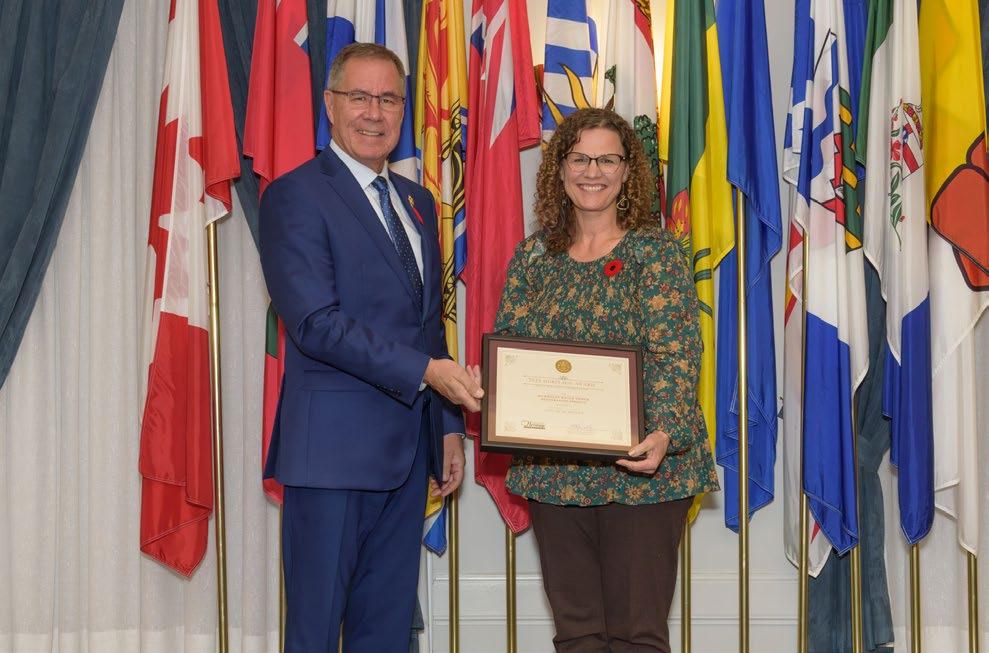
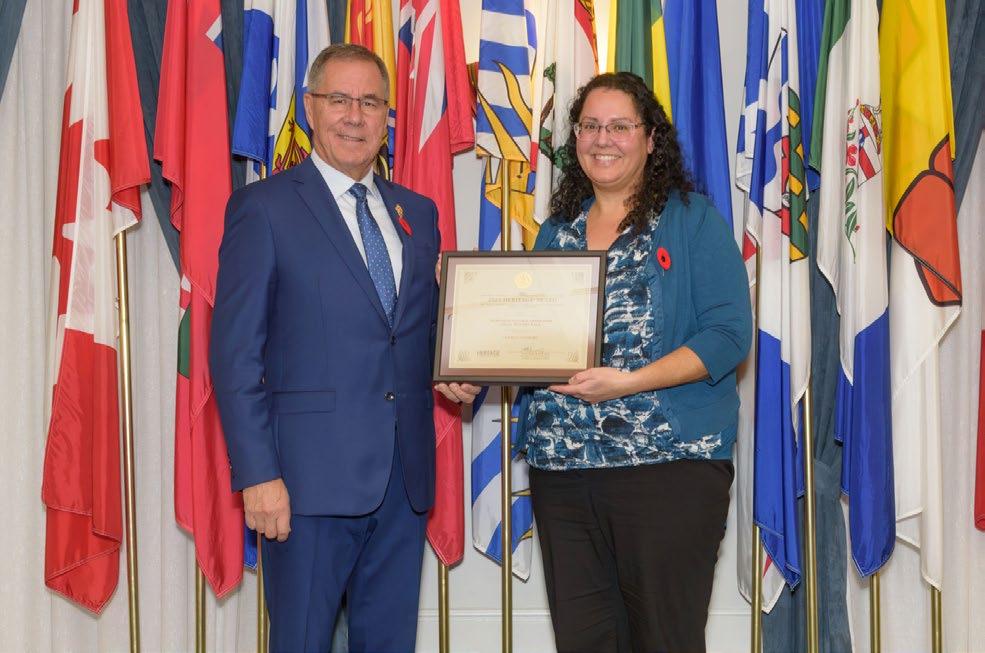


The 2023 Award recipients were (name of initiative and to whom the award was presented):
1918 Eaton’s Eager House Restoration - Ron and Bernie Cruikshank
Archives Week Video Project - Saskatchewan Council for Archives and Archivists
Court of King’s Bench in Prince Albert, Window Replacement - SEPW Architecture Inc.
Darke Hall, Restoration & Renovation - P3 Architecture Partnership
Heritage Presentations Series Partnership with Seniors without Walls - Western Development Museum, Moose Jaw
Humboldt Water Tower Restoration Project – City of Humboldt
Intercultural Connections & Anti-Racism Engagement (ICARE) - Multicultural Council of Saskatchewan
Introduction to Blacksmithing Program - Western Development Museum, Saskatoon
Kishkaytaytaahk - Saskatoon Public Schools & Métis/Michif Community
Lifestyle Blog & Podcast Short Story Collection - Norma Galambos
Multicultural Canada Day Gathering - Prince Albert Multicultural Council
Next of Kin Memorial Avenue, Woodlawn Cemetery Centennial Project - Next-of-Kin Memorial Avenue Centennial Committee
Saskatchewan Residential School Memorial Project - Ray Gosselin Architect Limited
Saskatoon Natural Grasslands Local History Walk - Carmen Gilmore
Southern Prairie Railway - Ogema Heritage Railway Association
Yorkton Land Titles Building, Exterior Restoration - City of Yorkton
Photos from the event, can be found at our website: https://heritagesask.ca/projects/awards.
Thank you to the volunteers, heritage professionals, community leaders, and ordinary citizens that work so tirelessly to share their knowledge and expertise, and celebrate Saskatchewan’s rich and diverse heritage!

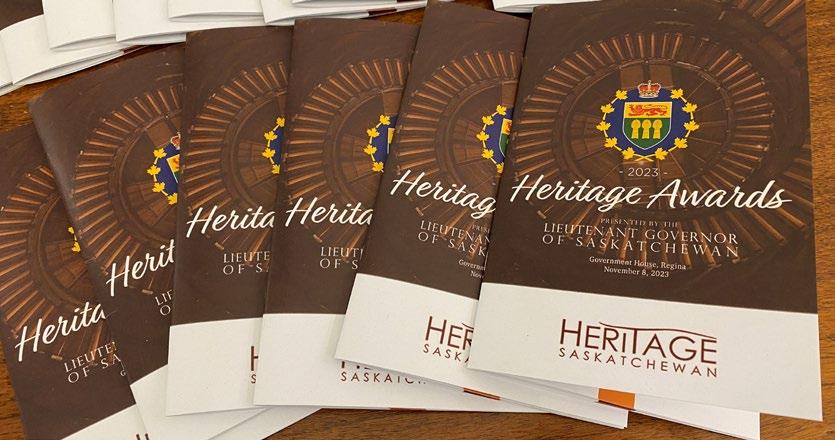
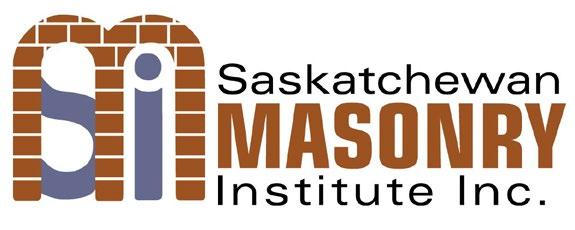 Heritage Saskatchewan thanks our sponsors for their support of our 2023 Awards programBRXTON Masonry Inc. and Saskatchewan Masonry Institute
Heritage Saskatchewan staff at Government House. L to R: Isaac Farrell, Olivia Shumski, David Siebert, Ingrid Cazakoff, Katherine Gilks, and Kristin Catherwood Mantta.
Heritage Saskatchewan thanks our sponsors for their support of our 2023 Awards programBRXTON Masonry Inc. and Saskatchewan Masonry Institute
Heritage Saskatchewan staff at Government House. L to R: Isaac Farrell, Olivia Shumski, David Siebert, Ingrid Cazakoff, Katherine Gilks, and Kristin Catherwood Mantta.

Heritage Saskatchewan is an agent of change. In meeting the ever-growing challenges of globalisation (technology, climate change, shifting demographics, polarization with communities, etc.) and as an adaptive and flexible organisation, we are cognizant of the need to reimagine and negotiate a shared future. We think globally and act locally.
A Memorandum of Understanding (MOU) signed annually with SaskCulture defines Heritage Saskatchewan’s commitment to work together in partnership as their Heritage Community of Interest. The agreement encourages the Boards of SaskCulture and Heritage Saskatchewan to meet and did so in
February to discuss our work, and to highlight our future objectives as outlined in our funding submission. Dean Kush, CEO for SaskCulture and Heritage Saskatchewan’s CEO Ingrid Cazakoff met regularly through the year to inform one another and to connect on relevant issues.
In March 2023, Heritage Saskatchewan’s first President, Kristin Enns-Kavanagh was awarded the Queen Elizabeth II Platinum Jubilee Medal (Saskatchewan). The Platinum Jubilee medal was created to celebrate the 70th anniversary year of Her late Majesty Queen Elizabeth II’s Accession to the Throne.
Kristin Enns-Kavanagh’s work with Heritage Saskatchewan began before the organization was incorporated in 2009. While serving on the Board of Directors for SaskCulture Kristin was appointed as a representative to SaskCulture’s Heritage Community of Interest which later transformed into the Interim Board for Heritage Saskatchewan. Through Kristin’s leadership as Chair, during a time of critical engagement with stakeholders, the development of a way forward for this Heritage Community of Interest, led to the creation and incorporation of Heritage Saskatchewan Alliance Inc. (October 2009), an organisation that continues to be a voice for living heritage in this province. Kristin

was elected Heritage Saskatchewan’s first President, and then served as Past President during those formative years. She is in fact, Heritage Saskatchewan’s longest serving board member.
Kristin’s contributions, passion, and dedication to heritage and to the heritage community saw her devote countless volunteer hours to build an organization that serves the broad range of tangible and intangible cultural heritage. She recognized early the value of living heritage and how heritage contributes to our sense of identity, belonging and place, where understanding the connection of the past and the present helps to inform our choices for the future. Kristin’s style of servant leadership contributed to a culture of relationship and team building that contributed to building the foundation for Heritage Saskatchewan. This important groundwork continues to guide our organisation today. Kristin continues to support and promote cultural heritage both in her professional and volunteer capacity.

As a part of the National Trust for Canada’s Heritage Reset Initiative, Heritage Saskatchewan participated in advisory committee meetings as work progressed throughout the year. This project, made possible through funding received from Canadian Heritage, provided resources for the Trust to explore and determine a new path forward for the heritage movement. Heritage conservation has a role to play in addressing critical issues of our time, such as climate action, reconciliation, and affordable housing, to name a few. The work undertaken to date has been informed by surveys (both public and internal), as well as feedback from advisory committee members, the National Council members, and delegates attending the Trust’s annual conferences. The feedback has provided a wealth of data to build an effective campaign to address critical needs in community, address diversity, increase a sense of belonging in the sector, and much more. The heritage movement itself must be willing to change and adapt to remain relevant. From there, it is better equipped to encourage greater public support for heritage.
In October, members of Heritage Saskatchewan’s Board of Directors and staff attended the National Trust Conference that was held in Ottawa. This conference marked the 50th anniversary of the National Trust, formerly known as the Heritage Canada Foundation. The conference, entitled “Transforming Heritage”, explored
a number of themes, including A Socio-Cultural Reset: Activating UNDRIP, Confronting Exclusion and Transforming Heritage Practice; Environmental Reset: Championing Heritage Conservation as Climate Action; and Economic Reset: Removing Systemic Barriers to Reuse and Empowering Conservation. Our summer research student, Isaac Farrell, attended the conference and presented his research on extant Saskatchewan grain elevators. His presentation was very well received and generated interest from Dr. Mariana Esponda, Professor of Architecture at Carleton University, who inquired about our organisation adding to her research by contributing to a survey regarding adaptive re-use of buildings. In addition, the conference was a time to celebrate, and a number of Governor’s Award recipients were recognized. These included the Southern Prairie Railway in Ogema Saskatchewan, for their successful initiative to save the train station and locomotive by creating a sustainable railway experience for visitors. Congratulations to Carol Peterson and all involved with this project!
Heritage Sasaktchewan’s own CEO Ingrid Cazakoff continues as a member of the Board of Governors for the National Trust and is currently serving as the Board’s Chair. CONGRATULATIONS INGRID!!


In 2023 we contracted Christine Fiddler, PhD candidate in History at the University of Saskatchewan, owner of Free the Spirit Consulting, and member of Waterhen Lake First Nation, to lead staff through workshops and presentations to increase our understanding of the history of colonization and its continuing impact on Canadian society and draw connections to our own work. Her workshop series was part of our larger, ongoing efforts toward reconciliation, and was meant to be a space where staff could gather and take the time to learn and reflect together, and to consider how we can do our work in a way that supports reconciliation.
Christine presented four workshops throughout the year on topics such as: the Indian Act, the Indian Residential School System, Indigenous activism, and protest movements, Murdered and Missing Indigenous Women and Girls, Métis history, and many other topics related to colonisation in Saskatchewan. Christine wove

in her own family history and personal experiences with racism to her detailed and informative sessions, which added a great deal of depth to her teachings. She also shared many resources with us, including resources on the protocol and customs when working with Indigenous elders and in Indigenous communities. Christine also worked with us on the Humboldt pilot project, so we benefitted immensely from her guidance during that process as well.
We are grateful to Christine for sharing her knowledge and wisdom with us this past year and wish her well as she completes her dissertation for her PhD and continues to work as an educator and facilitator of wellbeing in Indigenous and non-Indigenous communities.
[This] workshop series was a part of our larger, ongoing efforts toward reconciliation... and to consider how we can do our work in a way that supports reconciliation.


AS AT NOVEMBER 30, 2023 (with comparative figures as at November 30, 2022)


See accompanying notes to the financial statements. alf of the




FOR THE YEAR ENDED NOVEMBER 30, 2023 (with comparative figures for the year ended November 30, 2022)


